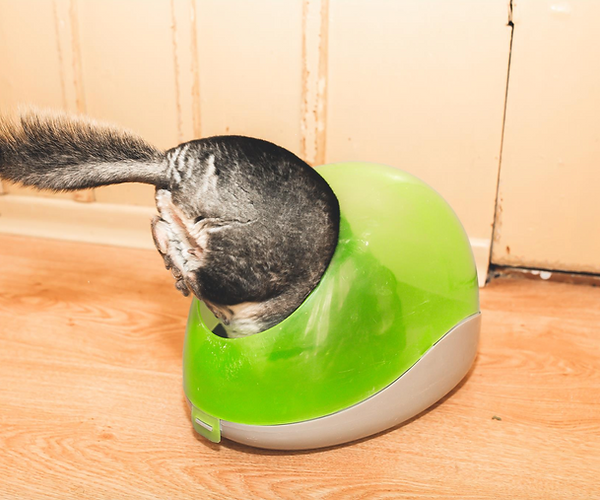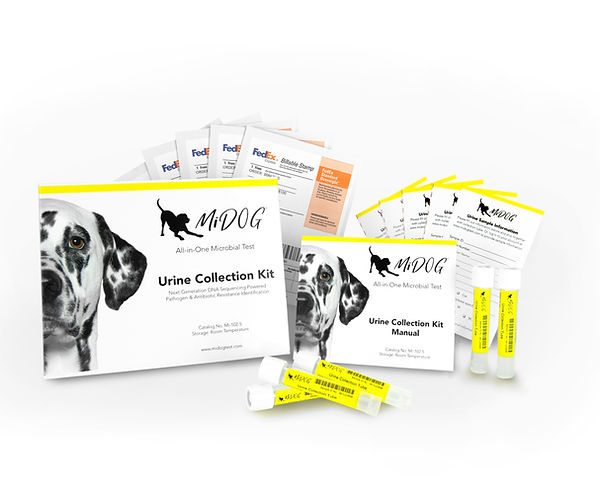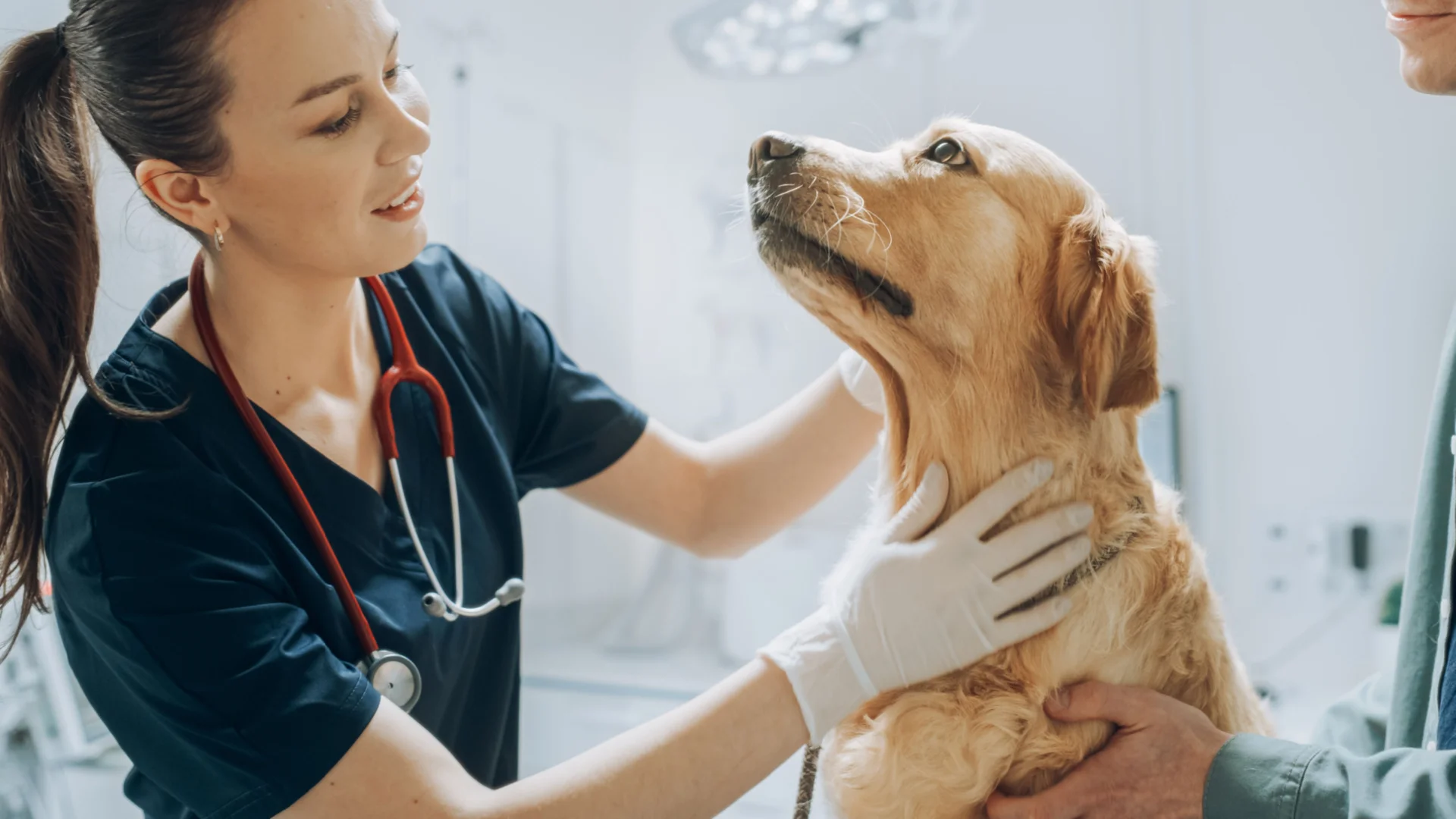
Chinchillas may clean themselves using dust baths, but that doesn’t mean these furry rodents can wash away infections easily. Reports of infectious disease prevalence in chinchilla communities are admittedly skewed due to most studies reporting prevalence based on fur-ranched chinchillas, but regardless, understanding possible sources of infections and how they manifest is critical for chinchilla owners [1]. It is important to note that while this article is going to focus on bacterial infections, there are several other diseases (ranging from parasitic infections to dental diseases) that are common and necessitate immediate interventions. Visiting an exotic pet veterinarian if you suspect your chinchilla is sick is always recommended.
And so without further ado, here are three common bacterial infections to be on the lookout for your furry best friend.

1. Pseudomonas Infection
As one of the most common infections in chinchillas, Pseudomonas aeruginosa is a Gram-negative rod-shaped bacterium that often presents with conjunctivitis in the early stages [2]. P. aeruginosa is an opportunistic pathogen that actually composes 42% of a healthy chinchilla’s intestinal microbiome, which means that this infection proliferates in unclean environments where the chinchilla’s immune system is compromised [3]. When a P. aeruginosa infection is left untreated, it can spread rapidly and cause lesions in the internal parenchymal organs and inflammation in the cecum and colon [1]. Highly virulent, multidrug-resistant strains are common, and so understanding the strain of this opportunistic bacteria is key for treatment [3].
Symptoms include:
- Otitis media and interna
- Anorexia
- Decreased fecal output
- Abortion
- Pneumonia
- Conjunctivitis
- Septicemia enteritis
- Sudden death
2. Yersiniosis
Yersiniosis is caused by Yersinia pseudotuberculosis and Y. enterocolitica, although the latter is more common. Y. entercolitica is a Gram-negative bacterium that causes intestinal and mesenteric lymph node lesions, although it can spread and cause lesions in other organs like the liver and spleen [4]. This disease is rare but fatal, and so limiting exposure to wild rodents that may carry the infection and identifying possible environmental factors that could expose your chinchilla to these bacteria is key. Early intervention treatment is effective, but if the disease is in the advanced stages, treatment is potentially ineffective. Late-stage infections result in systemic granulomatous lesions in the lungs, liver, and spleen, and result in death [1].
Symptoms include:
- Fatigue
- Decreased fecal output
- Weight loss
- Sudden death
3. Listeriosis
Listeria monocytogenes are the causative pathogen for listeriosis. These bacteria are facultative anaerobes, Gram-positive, and rod-shaped, presenting in three separate clinical manifestations: septicemia, encephalitis, and abortion [5]. Listeriosis progresses relatively slowly and is most often caused by the ingestion of contaminated feed [5]. Chinchillas spread this infectious disease through bloodborne dissemination, with L. monocytogenes targeting the liver [1]. Late-stage disease progression infects the lung, brain, spleen, lymph node, and more [1]. Contemporary research has made significant strides in characterizing L. monocytogenes, as a spectrum of virulent strains has been identified using Next-Gen Sequencing (NGS) [6].
Symptoms include:
- Diarrhea
- Constipation
- Rectal prolapse
- Possible blindness
- Convulsions/head tilts (if L. monocytogenes has invaded the brain)
Preventing Infections in Chinchillas

Chinchillas require dust baths at least 2-3 times per week.
Proper animal husbandry is critical to ensure that your pet chinchilla has a strong immune system. Environmental factors like unclean cages, lack of dust baths, improper climate, and more can compromise your chinchilla’s immune system and leave your furry pet susceptible to opportunistic bacteria.
Read the Long Island Bird & Exotics Veterinary Clinic Guide here to learn everything you need to know about proper chinchilla care.
Chinchilla Infection Treatment and Diagnostics
Veterinarians recommend that chinchillas visit yearly to ensure the well-being of these difficult to diagnose rodents. The aforementioned infections in this article all may require medical intervention, with treatment ranging from topical antibacterial solutions to antibiotic courses. Your veterinarian will also help you identify possible lifestyle changes you and your chinchilla can make to improve their quality of life and lessen the risk of recurrent infections. This entails understanding the exact pathogen that is impacting your chinchilla, with modern technological advances allowing for more targeted clinical diagnostic interventions.
For example, a recent study assessing the prevalence and analysis of Pseudomonas aeruginosa in chinchillas was able to use metagenomics technology to characterize the bacteria [3]. Metagenomics sequencing allowed the researchers to determine susceptibility of various strains of P. aeruginosa to different antibiotics [3]. This indicates the clinical applicability of using genomic sequencing to identify, analyze, and eventually treat chinchillas more effectively.
Culture-based studies have fallen particularly short for yersiniosis treatment. This disease is treatable but difficult to diagnose and characterize “due to limited specificity of culture methods” and “low recovery rates of pathogenic Y. entercolitica” [7]. Conversely, 16s rRNA sequencing technology has provided a promising avenue for clinical diagnostics of yersiniosis in chinchillas, with studies successfully determining pathogenicity in pig and human models [7].
Despite its name, the MiDOG All-in-One Microbial Test may provide the answer to the diagnostic conundrum that chinchilla infections pose. Utilizing NGS technology to detect and quantify all microbial DNA through untargeted and comprehensive sequencing and quantitative comparisons to reference databases, the MiDOG NGS technology provides a useful opportunity to shed light on the microbial makeup of your chinchilla’s infection for clinical application. The MiDOG microbiome test is a microbial identification test grounded on scientific research that provides veterinarians DNA evidence for the guided treatment of chinchilla infections, such as P. aeruginosa infections, yersiniosis, and listeriosis.

Find out if your vet uses MiDOG before you book your next appointment!
For health-related questions about your pet, reach out to an exotic pet veterinarian.
References:
[1] Frohlich, J. (2021). Chinchillas – Exotic and Laboratory Animals – Veterinary Manual. Retrieved 5 May 2021, from https://www.merckvetmanual.com/exotic-and-laboratory-animals/rodents/chinchillas#:~:text=P%20aeruginosa%20infections%20in%20pet,interna%2C%20metritis%2C%20and%20abortion.
[2] Klockgether, J., & Tümmler, B. (2017). Recent advances in understanding Pseudomonas aeruginosa as a pathogen. F1000research, 6, 1261. doi: 10.12688/f1000research.10506.1
[3] Hirakawa, Y., Sasaki, H., Kawamoto, E., Ishikawa, H., Matsumoto, T., & Aoyama, N. et al. (2010). Prevalence and analysis of Pseudomonas aeruginosa in chinchillas. BMC Veterinary Research, 6(1), 52. doi: 10.1186/1746-6148-6-52
[4] Rahman, A., Bonny, T., Stonsaovapak, S., & Ananchaipattana, C. (2011). Yersinia enterocolitica: Epidemiological Studies and Outbreaks. Journal Of Pathogens, 2011, 1-11. doi: 10.4061/2011/239391
[5] Wilkerson, M., Melendy, A., & Stauber, E. (1997). An Outbreak of Listeriosis in a Breeding Colony of Chinchillas. Journal Of Veterinary Diagnostic Investigation, 9(3), 320-323. doi: 10.1177/104063879700900318
[6] Tan, M., Siow, C., Dutta, A., Mutha, N., Wee, W., & Heydari, H. et al. (2015). Development of ListeriaBase and comparative analysis of Listeria monocytogenes. BMC Genomics, 16(1). doi: 10.1186/s12864-015-1959-5
[7] Fredriksson-Ahomaa, M., Stolle, A., & Korkeala, H. (2006). Molecular epidemiology ofYersinia enterocolitica infections. FEMS Immunology & Medical Microbiology, 47(3), 315-329. doi: 10.1111/j.1574-695x.2006.00095.x
Categories: Bacterial Infections, Exotic Pets, Next-Gen DNA Sequencing Technology

